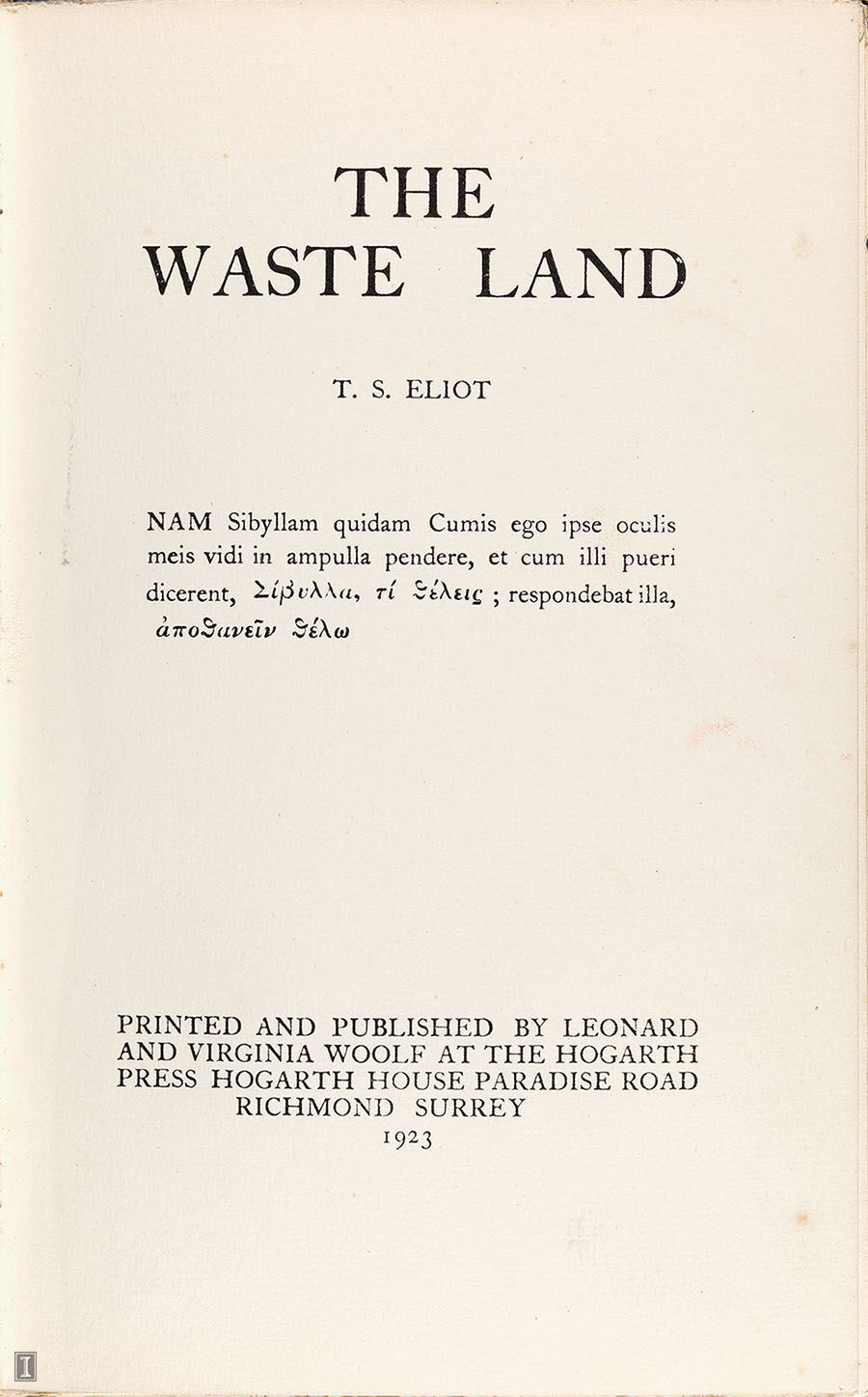“April is the cruellest month.” Thus begins one of the most important pieces of modern poetry ever written: T.S. Eliot’s The Waste Land. Characteristic of Eliot’s work, this poem invites readers to question their own knowledge by putting forth information in multiple languages. The Waste Land’s epigraph, written in Greek, details the fable of Apollo’s gift of eternal life to the Sybil and her mistake in forgetting to also ask for eternal youth. The Sybil’s careless choice of words exemplifies T.S. Eliot’s and the modernist literary movement’s belief that every word within a text holds its own importance.
Published in 1923, The Waste Land was written during a time of great trouble in Eliot’s life. His marriage was failing, he was suffering from a nervous disorder and his disillusionment with the post-war world was increasing. Critics of Eliot have sometimes commented on the poem’s seeming obscurity.
During a trip to Europe, Eliot and his wife stayed with author Ezra Pound in Paris, France. Having been advised to seek treatment for his nervous disorder in Lausanne, Switzerland, Eliot spent his time there writing. Upon his return to Paris, he presented his 19-page manuscript to Pound, who made significant and detailed comments and cuts. Eliot would later dedicate this poem to Pound.
The poem was originally published in the United Kingdom in the first issue of The Criterion, a literary magazine founded and edited by Eliot, in October of 1922. Its first appearance in the United States came one month later in November of 1922 in The Dial magazine, followed by a volume including the author’s notes by Boni and Liveright, in December of 1922. In September of 1923, Leonard and Virginia Woolf’s Hogarth Press, published the first UK book edition of the poem in a run of 450 copies handset by Virginia Woolf.

811 Eℓ4w1923
Eliot’s most famous work went through several different titles in its many different manuscript forms. The poem’s original title was He do the Police in Different Voices, a reference to Charles Dickens’s novel Our Mutual Friend, in which Betty Higden says of her son Sloppy, “You mightn’t think it, but Sloppy is a beautiful reader of a newspaper. He do the Police in different voices.” Eliot’s final title may also allude to other published works: Jessie L. Weston’s From Ritual to Romance which outlines the Grail legend, the wounding of the Fisher King and the following sterility of his lands, or possibly Madison Cawein’s Waste Land, another poem similar in theme and language, published in 1913.
“April is the cruellest month” because winter has ended and yet the first signs of spring have not yet broken through the mud and sludge. However, April also represents the beginning of a new growing season. T.S. Eliot’s The Waste Land is a perfect topic for our final blog post of April, as we conclude this year’s National Poetry Month and our campus finally shows signs that spring has arrived! -NC
Eliot, T.S. The Waste Land. (Richmond, Surrey: Printed and published by Leonard and Virginia Woolf at the Hogarth Press, Hogarth House, Paradise Road, 1923) 811 Eℓ4w1923: https://i-share-uiu.primo.exlibrisgroup.com/permalink/01CARLI_UIU/gpjosq/alma99360287012205899
Read The Waste Land on the Poetry Foundation’s website: http://www.poetryfoundation.org/poem/176735